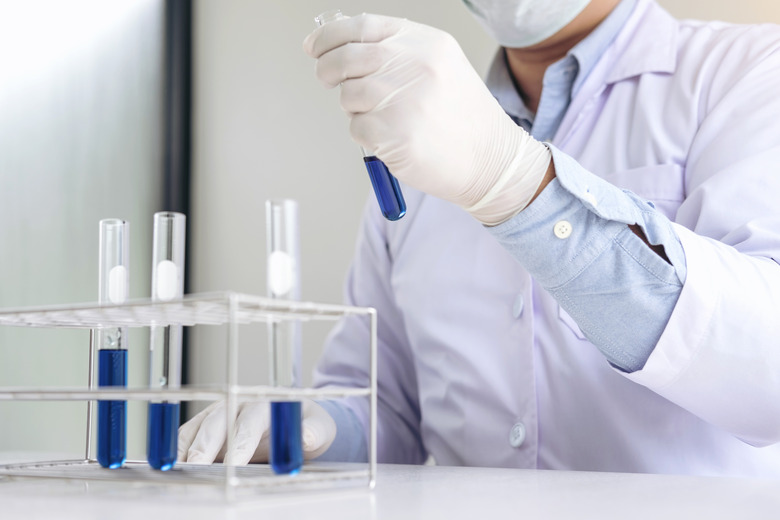Conversion Of PPM To Micromoles
Parts per million (ppm) is a unit of concentration. When concentration of a substance is low, such as water contaminated with certain metals (iron, cadmium or magnesium), ppm becomes more convenient than standard units of concentration – molarity or weight percent – used in chemistry. A mole is the unit in chemistry that measures the amount of substance. To make basic stoichiometric chemical calculations you need to convert ppm to moles or micromoles.
Step 1
Multiply ppm by the weight of the solution, then divide by 1,000,000 to compute the mass of the compound. For example, if ppm of cadmium (Cd) is 20 and the mass of the solution is 500 grams, then the mass of the dissolved cadmium is (20 x 500) /1,000,000 = 0.01 grams.
Step 2
Get the atomic mass of the element presented in water from the Periodic Table of the Elements. In this example, the atomic mass of cadmium (Cd) is 112.
Step 3
Divide the weight of the compound by the atomic mass to calculate the number of moles. In this example, the number of moles is 0.01 / 112 = 0.000089 moles.
Step 4
Multiply the number of moles by 1,000,000 to calculate micromoles. In this example 0.000089 x 1,000,000 = 89 micromoles.
Cite This Article
MLA
Fox, Oxana. "Conversion Of PPM To Micromoles" sciencing.com, https://www.sciencing.com/conversion-ppm-micromoles-8656294/. 13 March 2018.
APA
Fox, Oxana. (2018, March 13). Conversion Of PPM To Micromoles. sciencing.com. Retrieved from https://www.sciencing.com/conversion-ppm-micromoles-8656294/
Chicago
Fox, Oxana. Conversion Of PPM To Micromoles last modified March 24, 2022. https://www.sciencing.com/conversion-ppm-micromoles-8656294/
